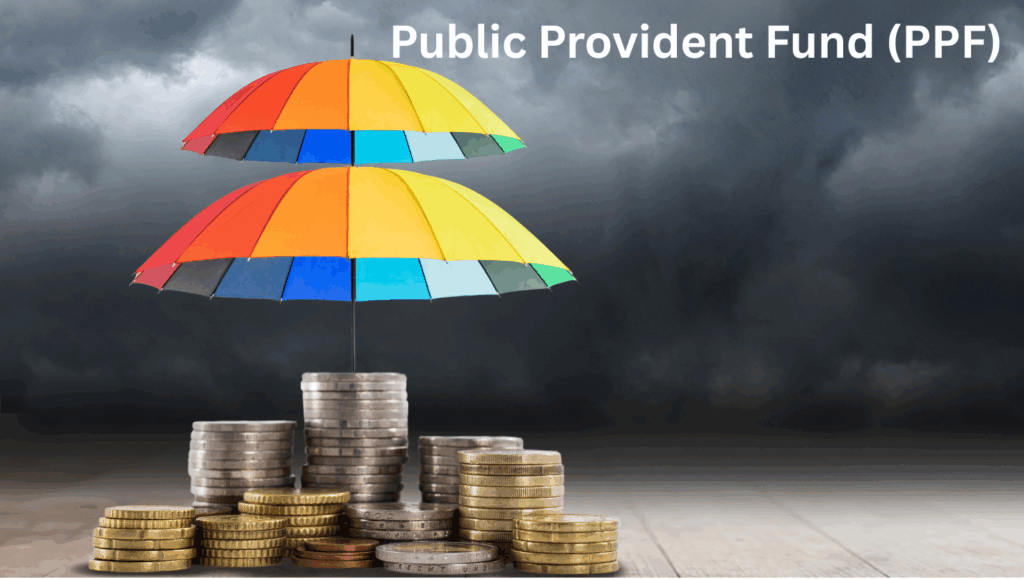
” Deciding whether to prepay loans or start investing? Explore the pros, cons, and key factors like interest rates, investment returns, and risk tolerance. Learn strategies to balance debt repayment and wealth building for long-term financial success. Make informed decisions with expert tips and actionable insights.”
When it comes to managing your finances, one of the most common dilemmas is whether to prepay your loan or start investing. Both options have their own set of advantages and disadvantages, and the right choice depends on your individual financial situation, goals, and risk tolerance. In this comprehensive guide, we’ll explore the benefits and drawbacks of prepaying loans and starting to invest, helping you make an informed decision.
Loan Prepayment Statistics
- Interest Savings: Prepaying a loan can save a significant amount on interest. For example, prepaying a home loan of ₹50 lakhs with an interest rate of 8% per annum can save you over ₹10 lakhs in interest over a 20-year tenure.
- Credit Score Improvement: According to a study by Experian, individuals who prepay their loans see an average increase of 20-30 points in their credit scores.
- Prepayment Penalties: Approximately 30% of lenders charge prepayment penalties, which can range from 1-5% of the outstanding loan amount.
- Debt-Free Sooner: Prepaying a loan can reduce the loan tenure by several years. For instance, making an extra payment of ₹10,000 annually on a 20-year home loan can shorten the loan term by up to 3 years.
Investing Statistics
- Stock Market Returns: Historically, the S&P 500 has provided an average annual return of around 10% over the past 100 years. This means that investing ₹1 lakh in the stock market could grow to over ₹17 lakhs in 30 years, assuming a 10% annual return.
- Inflation Hedge: Investments in equities have historically outpaced inflation. For example, while the average annual inflation rate in India has been around 6%, the average annual return from the Indian stock market has been approximately 12%.
- Wealth Accumulation: Investing ₹5,000 monthly in a mutual fund with an average return of 12% per annum can grow to over ₹1 crore in 20 years.
- Passive Income: Dividend-paying stocks can provide a steady stream of passive income. For instance, the average dividend yield of the Nifty 50 index is around 1.5-2%.
Comparative Analysis
- Interest Rate vs. Investment Returns: If your loan interest rate is higher than the potential returns from investments, prepaying the loan might be more beneficial. For example, if your loan interest rate is 12% and the expected return from investments is 8%, prepaying the loan would save you more money.
- Tax Benefits: Home loans in India offer tax deductions under Section 80C and Section 24. Prepaying a home loan might reduce these tax benefits, whereas certain investments like ELSS (Equity Linked Savings Scheme) also offer tax deductions under Section 80C.
- Liquidity Needs: Investments in liquid assets like mutual funds or stocks can be easily converted to cash, whereas prepaying a loan reduces your liquidity.
Understanding Loan Prepayment
What is Loan Prepayment?
Loan prepayment refers to the act of paying off your loan partially or fully before the scheduled end date. This can apply to various types of loans, including home loans, personal loans, and car loans.
Benefits of Loan Prepayment
- Interest Savings: One of the primary benefits of prepaying your loan is the reduction in the total interest paid over the loan tenure. By reducing the principal amount, you decrease the interest calculated on it, leading to substantial savings.
- Faster Debt-Free Status: Prepaying your loan allows you to become debt-free sooner, providing peace of mind and financial flexibility.
- Improved Credit Score: Clearing off your debt earlier can boost your credit score, making it easier to secure future loans at better terms.
- Reduced Financial Stress: Eliminating debt can alleviate financial stress and provide a sense of financial freedom.
- More Disposable Income: Once your loan is paid off, the money previously allocated to EMIs can be redirected towards other financial goals or investments.
Drawbacks of Loan Prepayment
- Prepayment Penalties: Some lenders charge a fee for prepaying your loan before the term ends, which can reduce the benefits of early repayment.
- Liquidity Considerations: Using funds to prepay a loan may leave you cash-strapped, preventing you from taking advantage of other investment opportunities.
- Loss of Tax Benefits: Certain loans, such as home loans, offer tax benefits. Prepaying these loans may reduce your tax deductions.
Understanding Investing
What is Investing?
Investing involves allocating money into various financial instruments, such as stocks, bonds, mutual funds, real estate, and more, with the expectation of generating returns over time.
Benefits of Investing
- Wealth Accumulation: Investing can help you grow your wealth over time, thanks to the power of compounding.
- Achieving Financial Goals: Investments can be tailored to meet specific financial goals, such as buying a home, funding education, or retirement planning.
- Inflation Hedge: Investments, particularly in equities and real estate, can provide returns that outpace inflation, preserving your purchasing power.
- Diversification: Investing allows you to diversify your portfolio, reducing risk by spreading investments across different asset classes.
- Passive Income: Certain investments, such as dividend-paying stocks and rental properties, can generate passive income.
Drawbacks of Investing
- Market Risk: Investments are subject to market fluctuations, and there is a risk of losing capital.
- Time and Knowledge: Successful investing requires time, research, and knowledge. Without proper understanding, you may make poor investment decisions.
- Liquidity Risk: Some investments, such as real estate, may not be easily liquidated when you need cash.
Factors to Consider When Deciding
Interest Rates
Compare the interest rate on your loan with the potential returns from investments. If the loan interest rate is high, prepaying the loan may be more beneficial. Conversely, if you can achieve higher returns through investments, investing might be the better option.
Financial Goals
Consider your short-term and long-term financial goals. If becoming debt-free is a priority, loan prepayment may be the way to go. If building wealth and achieving specific financial milestones are more important, investing could be the better choice.
Risk Tolerance
Assess your risk tolerance. If you prefer a guaranteed return and want to avoid market volatility, prepaying your loan might be more suitable. If you are comfortable with taking on some risk for potentially higher returns, investing could be the right path.
Tax Implications
Evaluate the tax benefits associated with your loan and potential investments. Prepaying a loan may reduce your tax deductions, while certain investments offer tax advantages.
Liquidity Needs
Consider your liquidity needs. If you require easy access to cash, investing in liquid assets or maintaining an emergency fund might be more important than prepaying your loan.
Investment Returns
Consider the potential returns on your investments. Historically, the stock market has returned an average of 7-10% annually. If your loan interest rate is lower than this, investing may be a better option.
Financial Goals
Your financial goals should guide your decision. If your primary goal is to reduce debt and achieve financial stability, prepaying your loan may be the best choice. If your goal is to build long-term wealth, investing could be more advantageous.
Tax Implications
Consider the tax implications of both options. Some loans, like mortgages, offer tax deductions on interest payments, which can reduce the effective interest rate. On the other hand, certain investments, such as retirement accounts, offer tax advantages that can enhance your returns.
Scenario Analysis: Prepay Loan vs. Invest
Case Study 1: High-Interest Debt
Scenario: You have a credit card debt with an interest rate of 18%.
Analysis: In this case, prepaying the debt is likely the better option. The high-interest rate means you’re losing money faster than you could reasonably expect to earn through investments.
Conclusion: Focus on paying off high-interest debt before considering investing.
Case Study 2: Low-Interest Debt
Scenario: You have a mortgage with an interest rate of 3.5%.
Analysis: With a low-interest rate, the potential returns from investing in the stock market (historically 7-10%) could outweigh the benefits of prepaying the mortgage.
Conclusion: Consider investing while making regular mortgage payments.
Case Study 3: Balanced Approach
Scenario: You have a mix of high and low-interest debt.
Analysis: A balanced approach may be optimal. Prepay high-interest debt while investing a portion of your disposable income.
Conclusion: Diversify your financial strategy to address both debt and investment goals.
Strategies for Balancing Loan Prepayment and Investing
The 50/50 Rule
Allocate 50% of your disposable income to prepaying loans and the other 50% to investing. This approach allows you to reduce debt while still building wealth.
Debt Snowball vs. Debt Avalanche Methods
- Debt Snowball: Focus on paying off the smallest debts first, gaining momentum as each debt is cleared.
- Debt Avalanche: Focus on paying off the highest-interest debts first, saving more on interest over time.
Emergency Fund Considerations
Before deciding to prepay loans or invest, ensure you have an emergency fund covering 3-6 months of living expenses. This provides a financial cushion and prevents the need to take on additional debt in case of emergencies.
Deciding whether to prepay your loan or start investing is a complex decision that depends on various factors, including interest rates, financial goals, risk tolerance, tax implications, and liquidity needs. By carefully evaluating these factors and considering your individual circumstances, you can make an informed decision that aligns with your financial objectives.
Remember, there is no one-size-fits-all answer. It’s essential to assess your unique situation and consult with a financial advisor if needed. Whether you choose to prepay your loan or start investing, the key is to make a decision that supports your long-term financial well-being.
-
Tax Professionals Reveal: The Real Reason Your Refund Takes Longer Than IRS Says
Filed early but still waiting? The IRS is legally holding millions of refunds until March 2—even for January
-
Nokia’s Patent Victory: Why You Can’t Buy Acer and ASUS Laptops in Germany Anymore
Nokia just weaponized a hidden patent inside every laptop you own—and two tech giants can’t sell in Germany
-
Elon Musk Reveals X’s Game-Changing Smart Cashtags for Instant Crypto and Stock Trades
X will let you trade stocks and crypto straight from your timeline in weeks via Smart Cashtags. No app-switching, just
































